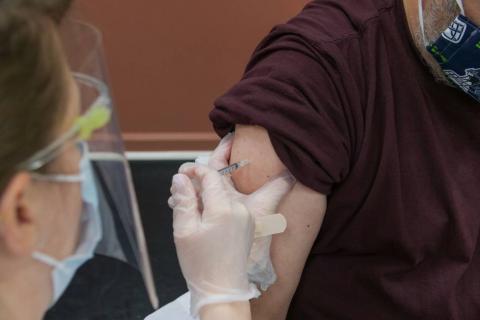During the pandemic, individuals often consider the infection risk from crowds of other people when deciding how many health protection items to purchase and whether to dine inside a restaurant or a coffee shop. When doing so, our research demonstrates that individuals perceive less covid-19 infection risk and engage in less health-protective behaviors when their minds make some kind of association with close friends – a phenomenon labeled as the “friend-shield effect”.
This study stems from personal experiences we have both had. We recognized that we felt more or less vulnerable to covid-19 infection depending on the people we were with, i.e. we likely felt safer with close friends. We became fascinated by this seemingly irrational bias, and wanted to study in which context such friend-shield bias would manifest.
Using a field study and four experiments we found that this occurs across a wide range of contexts: when thinking of a friend while reading covid-19-related news, when perceiving a friend as the source of prior covid-19 infection, and when noting friends’ presence during potential covid-19 exposure in indoor venues.
Individuals become more relaxed with health protection measures when associating covid-19 risks with friends
Specifically, individuals who thought of a friend before reading covid-19-related news, afterward decided to purchase a substantially smaller quantity of health protection items from a web shop, such as masks and hand sanitizer, compared to those who thought of an acquaintance. This behavior notes that in the presence of crowds individuals become more relaxed with health protection measures when associating covid-19 risks with friends.
Similarly, in another study, participants who attributed their prior covid-19 infection to a friend planned to spend less than half as much on health protection items than those who associated covid-19 with an acquaintance or a stranger. Moreover, when we inquired individuals to contemplate a proximate visit to an indoor coffee shop with a friend, they anticipated significantly less infection risk and even anticipated the coffee shop to be less crowded (i.e. less risky) than when contemplating a visit with an acquaintance.
We collected our data between April 2020 and February 2021, the first year of the pandemic. Since various restrictions were in place we had to conduct our studies online, which is why we focused on risk perceptions that are often reliable predictors of behaviors.
Feelings of safety felt from close friends is a universally shared phenomenon across cultures
Our friend-shield effect is based on feelings of safety felt from close friends, which is a universally shared phenomenon across cultures. Therefore, even if the experiments were performed with individuals in the US, we believe the effect will be replicated in Spain.
Importantly, we found the friend-shield effect to be more prominent among people who perceived a greater gap between those with whom they feel close (so-called in-group) and with whom they feel distant (out-group). We expect this to be true both in the USA and in Spain. In the USA, however, conservatives tend to have clearer in-group/out-group boundaries than liberals, and for this reason we found that conservatives exhibit a stronger friend-shield effect than liberals. Future studies are needed to tackle how the friend-shield effect relates to political orientations in Spain.
Making people accustomed to spending most of their time with their closest social circle may have backfired and intensified a false sense of safety and invulnerability to potential infection risks
Limiting interactions to close friends and family members has been a commonly recommended protective measure to reduce covid-19 transmission during the pandemic. Yet, our findings demonstrate that such close social bubbles can unintentionally create other issues in practice, as people tend to perceive reduced infection risks and engage in less protective health behaviors. That is, making people accustomed to spending most of their time with their closest social circle may have backfired and intensified a false sense of safety and invulnerability to potential (future) infection risks.
Increasing awareness of this phenomenon could help people recognize and proactively counteract their tendency to downplay infection risk and engage in less health-protective behavior in the presence of friends during pandemics
Therefore, we stress that safety mandates should make greater efforts to inform the public regarding psychological biases, specifically the irrational and potentially dangerous friend-shield effect. Also, public policymakers may consider designing more targeted health campaigns for people who are more prone to a stronger friend-shield effect.
Increasing awareness of this phenomenon could help people recognize and proactively counteract their tendency to downplay infection risk and engage in less health-protective behavior in the presence of friends during pandemics. After all, no matter how loving and intimate, friends and family cannot protect someone from contracting and suffering from a virus transmitted by a wide range of other people.




